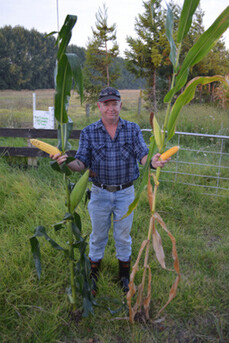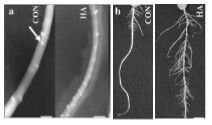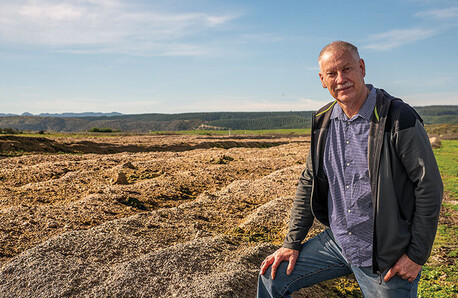Case Studies
Ecocast Vermicast improves maize growth
By applying 20 tonnes of Ecocast vermicast per hectare, Whakatane maize grower Phil Brogden increased dry matter for maize silage by more than 25% over the 2013 growing year – in spite of the area being declared an official drought zone.
Brogden is just one of a group of growers whose use of Ecocast vermicast resulted in maize crops that were still green and growing at the end of summer. Crops which had not been fertilised with vermicast were dry and needed to be harvested weeks earlier.
Brogden says when they examined the root systems the difference was amazing. “We found more than twice as many lateral roots on the maize fertilised with vermicast. Greater growth means more soil volume is available to the maize, increasing access to water and nutrients. Even with the limited rainfall we had, the maize was able to keep growing further into the dry period and of course, provide greater yields.”
Kawerau Wormfarm expands
Read about EcoCast, New Zealands largest worm farm, and how we are expanding in Kawerau. Processing 30-50 tonnes a day, and taking 10,000 tonnes of waste every year from Rotorua Council, EcoCast is the cleaner, greener option helping councils avoid landfill and create beneficially reusable material for the environment.
Read the article on the Sun Live, Bay of Plenty news.
Biosolids + Pulpmill solids + Compost worms = Fertile soils (The Western Bay Way)
Ulrich W. Glasner, Michael Quintern
Western Bay of Plenty District Council (WBOPDC) has taken up the challenge of producing stabilised biosolids from its wastewater sludges so they can all be safely and beneficially applied to land. Te Puke WWTP biosolids reuse is contracted out for vermicomposting in Kawerau. EcoCast Ltd is mixing some 900 tonnes of biosolids, with several thousand cubic metres of primary solids from Tasman Pulp & Paper Mill.
Read the full Case Study here
Biosolids research in NZ, what's new?
Currently, landfilling of biosolids is practiced by the majority of local authorities due to perceived and real uncertainties around social and cultural acceptability and risk of alternative disposal methods. There is a strong scientific case that application to land is a sustainable option, because biosolids are carbon-rich and contain high concentrations of valuable nutrients that can be used to bolster soil carbon reserves, thereby reducing dependence on artificial fertilisers.






